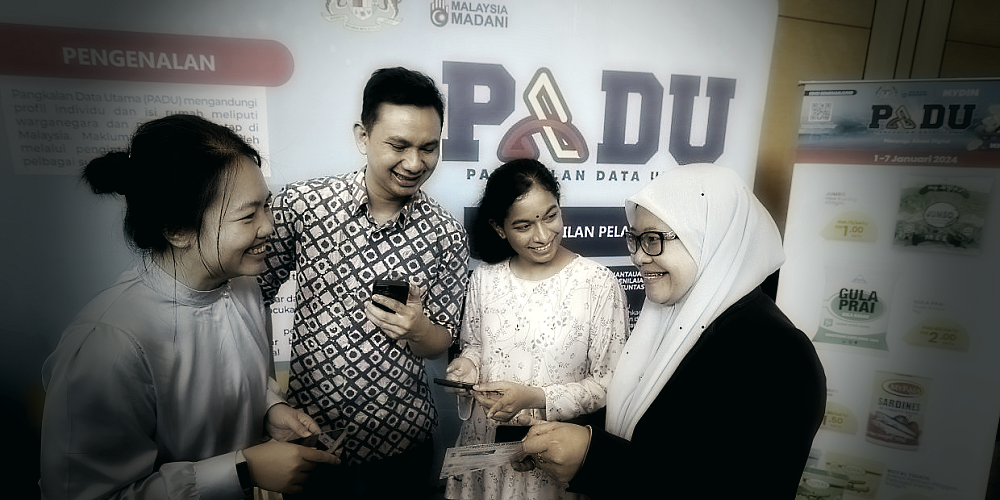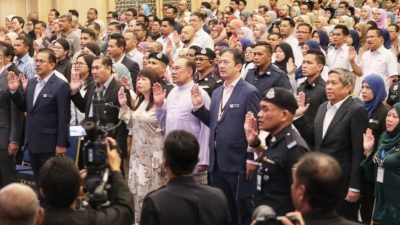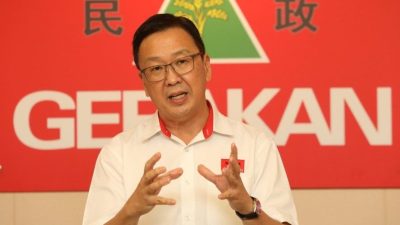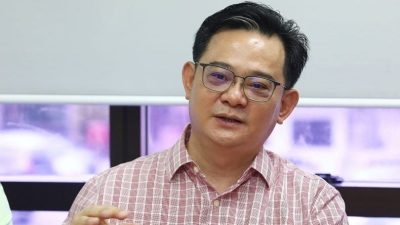
Prime Minister Datuk Seri Anwar Ibrahim officially launched the Central Database Hub (PADU) system at Putrajaya International Convention Centre on Tuesday, allowing members of the public to instantly update their personal particulars.
The prime minister said PADU would help plug leakages in past government subsidies and aids, thus helping the government save financial expenses while enhancing the efficiency of government budgetary distribution.
He said due to the country’s flawed subsidisation mechanism, many foreigners and high-income individuals have also benefited from the government’s subsidies, adding that PADU will help plug such leakages.
Meanwhile, Minister of Economy Rafizi Ramli also pointed out that PADU will help the government more accurately evaluate the actual socio-economic conditions of the rakyat, as it is more accurate and rational than just a single parameter like “gross household income”.
Rafizi said through the PADU system, the government will not just look at the people’s gross income when evaluating their socio-economic conditions, but will also take into account the number of their dependants, household size, local living standard, distance between home and workplace, and properties owned (houses, vehicles, land).
This methodology will upend past government classification of B40, M40 and T20, using PADU to integrate each household’s socio-economic conditions and other parameters to set a standard for “wealth” in order to achieve the goal of more targeted subsidisation to help the poor.
Rafizi said during the launch of PADU that even though the system has already compiled various data of individuals, the people will still need to update data on 39 other personal items to ensure the effectiveness and accuracy of data so that it can better reflect the most recent economic conditions of the people.
According to the government, PADU will be a safer, more comprehensive and instant national database. In addition to helping the government implement more targeted policies, it will also generate more precise data analysis to help the government draft more effective national policies in a bid to achieve fiscal balance.
Simply put, PADU has been authorised by the government to coordinate and take over the work of some government departments in managing and compiling the data collected, thus helping the government implement various targeted subsidy programmes such as diesel and electricity, based on the data collected.
Members of the public are concerned about possible leaks of their confidential information, as what happened to large volumes of public data from the National Registration Department earlier.
That said, if the government’s principal objective is just to abolish fuel subsidy for the rich, it may be disappointed, as the savings may not be substantial.
Based on the figures revealed by former deputy finance minister Ahmad Maslan last February, the government spent a total of RM66.3 billion in various subsidies in 2022, of which RM50.8 billion alone was on petrol, diesel and natural gas subsidy. Of this amount, the percentage of fuel subsidy enjoyed by the T20 community was 35%, while the percentages for M40 and B40 were 41% and 24% respectively.
Back then Ahmad Maslan said if the government were to remove the fuel subsidy for T20, that would translate to RM18 billion saving for the Treasury, and this saving could be channelled to 26 government departments for the implementation of various government projects.
But, the reality may not be that optimistic!
If each of the T20 community making up the top 20% of the country’s total workforce (3.2 million out of 16.15 million) enjoys an average of RM5,625 per year of fuel subsidy (RM18 billion / 3.2 million people), then each of them will have to pump 4,800 litres of RON95 petrol a year (based on the price difference between RON97 and RON95 of RM1.17 per litre; RM5,625 / 1.17 = 4,800 litres), or 13.2 litres a day, then it becomes clear that the RM18 billion claim is illogical. We believe much of this amount could have been spent on logistics instead.
It is our hope that PADU will help the government more specifically target the desired recipients of government subsidies and aids, or all the effort may not work out as planned in the end.
As for the psychological barrier encountered by members of the public while registering or updating their particulars in PADU, it is beyond doubt.
First and foremost, they are concerned about possible leaks of their confidential information, as what happened to large volumes of public data from the National Registration Department earlier.
Besides, they are also worried whether there would be further actions from the government, say requiring the users to explain their tax returns of previous year even though they have conscientiously paid their dues.
ADVERTISEMENT
ADVERTISEMENT








































